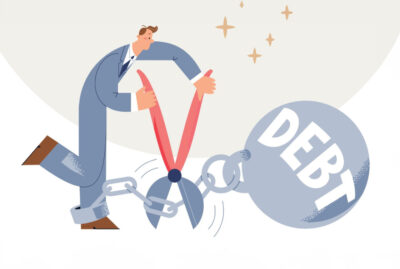Strategies for debt collections
 Getting paid is not always straightforward. Customers frequently have reasons, good or bad, for delaying payment but the result is always a headache for a business owner.
Getting paid is not always straightforward. Customers frequently have reasons, good or bad, for delaying payment but the result is always a headache for a business owner.
Here are five proven ways to help you collect from slow-paying customers:
- Request payment up front.
For new customers, or those with a documented history of collection issues, consider asking for a deposit on each order. This should generally be a small, yet noticeable percentage of the contract or order price. You could also explore the concept of asking for a service retainer fee, similar to how law firms typically operate.
- Charge fees.
Most customers are likely familiar with the concept of late-payment fees from dealing with their credit card companies. Consider implementing fees or finance charges on past due accounts. Place extremely delinquent accounts on credit hold or adjust their payment terms to cash on delivery.
- Reward timely payments.
Effective collection strategy is about more than penalizing slow-paying customers. It’s also about incentivizing those who pay on time or who represent a potentially lucrative long-term relationship. Crunch the numbers to determine the feasibility of giving discounts to customers with strong payment histories or to those who have improved the timeliness of payments over a given period.
- Communicate proactively.
Set up regular email reminders and place live phone calls to customers who haven’t settled their accounts. If the employees who work directly with the delinquent customers can’t resolve payment issues, elevate the matter to a manager or even to you, the business owner. If necessary, consider executing a promissory note to prevent the customer from disputing the charges in the future.
- Get external help.
If, after repeated tries, your collection efforts appear unsuccessful, it might be time to get outside help. This typically means engaging either an attorney who specializes in debt collection or a collections agency. View this as a last resort, however, because third-party fees may be considerable and you are unlikely to continue doing business with the customer.
One last point: If an outstanding debt is not collectible, you may be able to write it off on your tax return. Be sure to document each customer’s promises to pay, details of your collection efforts and why you believe the debt is uncollected.
This column is for information only and is not intended as advice. If you have questions about writing off an uncollected debt, consult a knowledgeable professional.

Norm Grill, CPA, (N.Grill@GRILL1.com) is managing partner of Grill & Partners, LLC (www.GRILL1.com), certified public accountants and consultants to closely held companies and high-net-worth individuals, with offices in Fairfield and Darien, 203 254-3880.